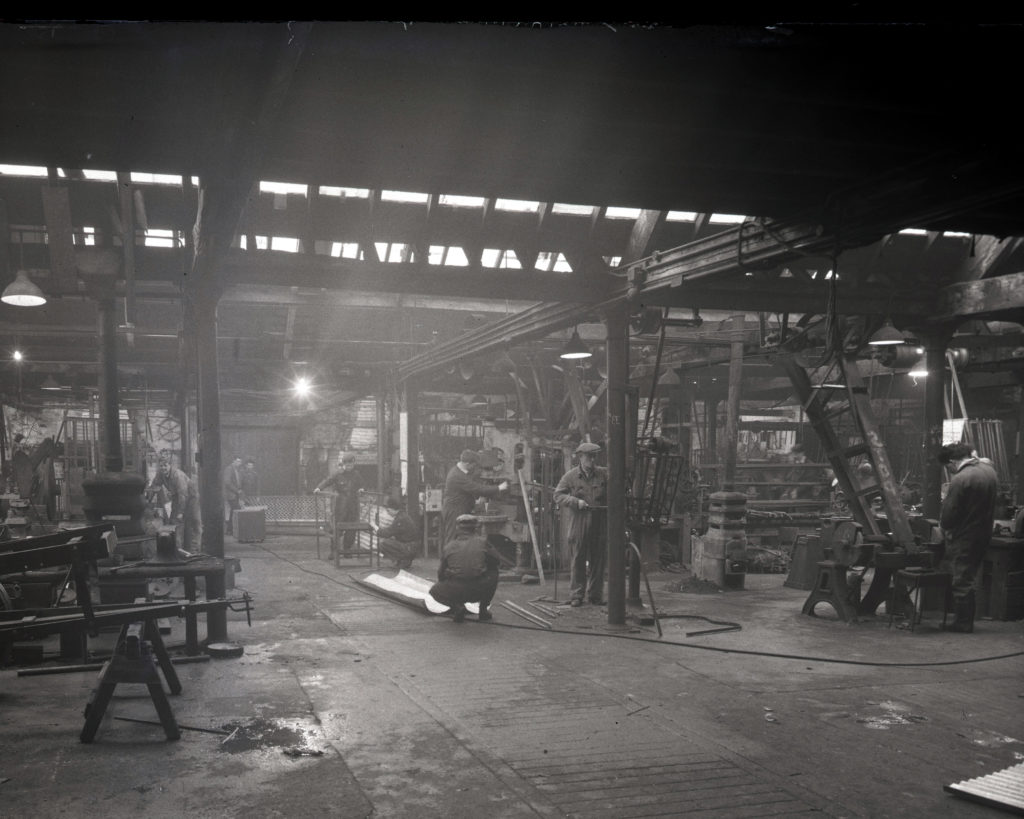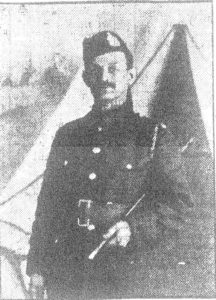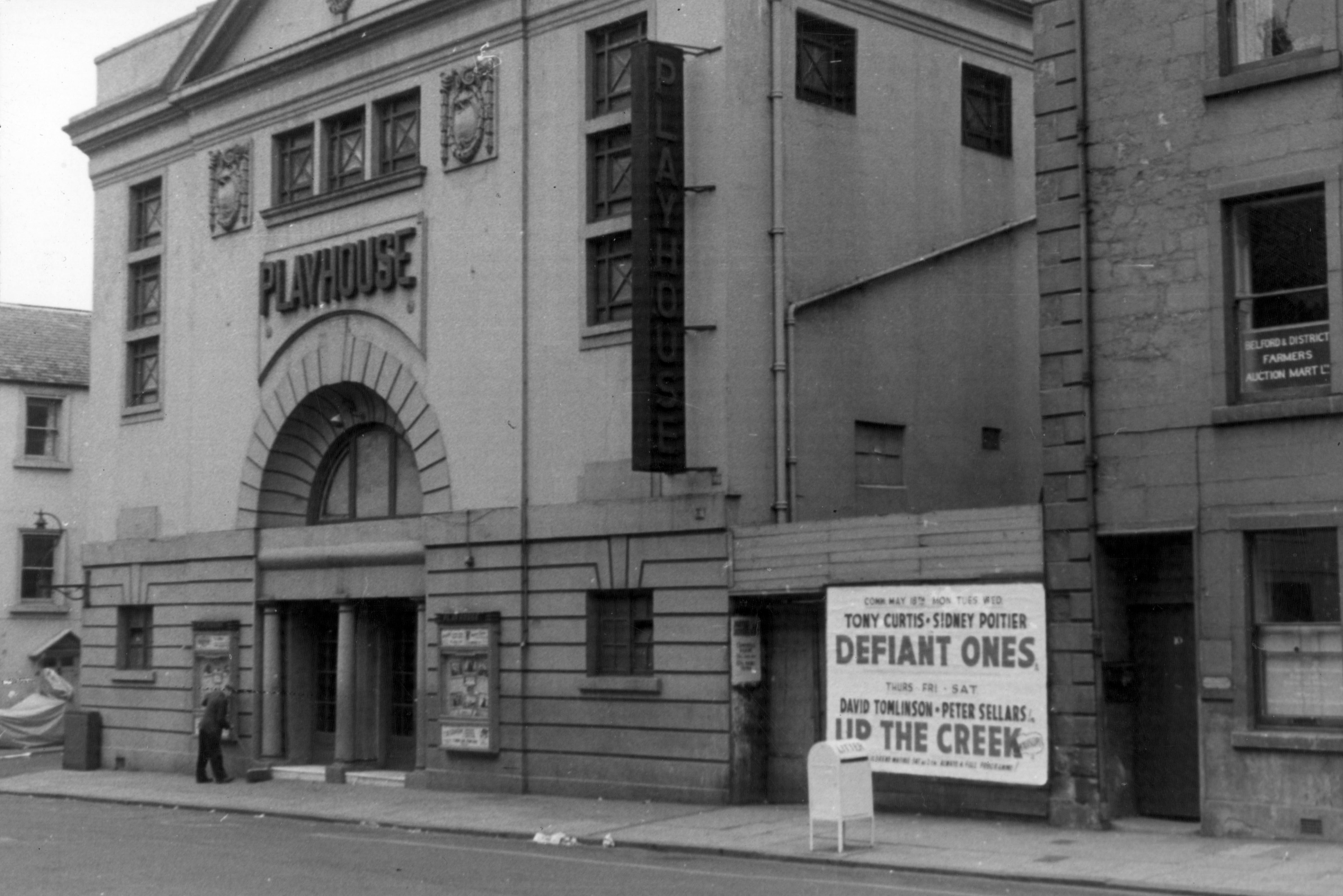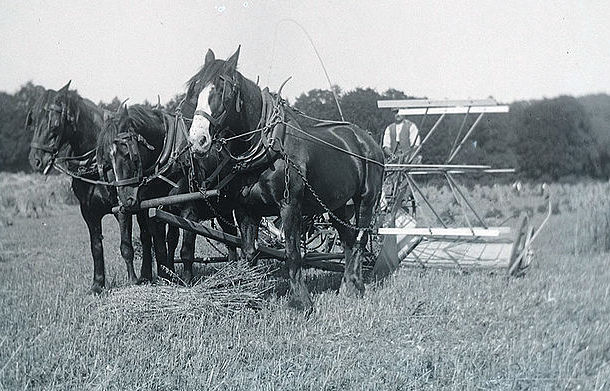BERWICK ADVERTISER, 20 APRIL 1917
TWEEDMOUTH MAN WOUNDED
Information has been received by his wife in Berwick that Private F. Crow, K.O.S.B.’s has been wounded in the left-arm and right thigh, and has been sent to hospital. The chaplain (the Rev. R. W Hopkins) in a letter remarks that “there is no reason why he should not get on well. He will very soon be in England and there is no cause for anxiety.” Private Crow is a painter to trade and for a number of years was employed in the painting department of Messrs Wm. Elder and Sons Implement Works.

Latterly he was employed with Mr Gilchrist, painter, etc, in West Street. Private Crow joined under the Derby Scheme in September last. He was trained at Duddingston, and went to France on 15th January.
LOCAL NEWS
Death of an Old Berwick Ship Captain. – Death has this week removed one of the old-time Berwick ship captains in the person of Mr Thomas Ormston, at the ripe old age of 80 years. In days when Berwick port was of much importance, Captain Ormston had command successively of the late Mr Andrew Thompson’s schooners – the “Tweed” and the “Maggie,” for a long time sailing to continental and other ports. He was a freeman of Berwick, being “made free” in the year 1858. He has lived in retirement for a number of years.
Good Work to the Soldiers Recognised. – For seven years Mrs Highgate has carried on almost useful and philanthropic work at her residence on the Quay Walls on behalf of the social and moral advancement of the soldiers in Berwick. Owing to advancing years she has been compelled to relinquish her good efforts, and is on the eve of leaving the town for Dunoon. The Mayor and Mayoress, supported by a few friends who are fully alive to the great and good work Mrs Highgate has accomplished, fittingly resolved that she should receive some small token of appreciation to mark her stay and labours in the Border town, and a presentation ceremony was somewhat hurriedly arranged to take place in the Council Chamber on Tuesday evening. The proceedings were of a private character, and of brief duration. His Worship the Mayor presided, there were also present the Mayoress, Mr Thos. Wilson, who acted as treasurer; Ald. A. Logan, Mr and Mrs J. Strachan, Mrs T. Purves, Miss C. E. Purvis, Miss Richardson, Miss Paxton, Mrs McCreath (senior), and a friend, Mr and Mrs Alex. Steven. In a neat and appropriate speech the Mayor made the presentation, consisting of a marble clock, on which a suitable inscription is to be placed. Mrs Highgate made a feeling and suitable response, alluding to the pleasure and great interest her work among the soldiers had given her. Several others spoke of the great good that had resulted from Mrs Highgate’s work, bearing testimony to the unselfish and disinterested manner in which she had always carried these out.
The Poultry Demonstration Train on the N.E. Railway. – The poultry demonstration train on tour on the North Eastern railway in Durham this month is meeting with great success, and the demonstrations that will follow in Northumberland are being looked forward to with considerable interest. The train consists of four coaches, and is replete with the latest poultry-culture appliances, comprising, among other things, incubators of various types, brooders, trap-nests, egg-boxes, egg-testing lamps, cramming machine, and models of poultry-houses. The different kinds of foods suitable for poultry, as well as a pen of pullets illustrating the way in which fowls are kept on the intensive system, are other features of the exhibition. The train is accompanied by lecturers and demonstrators. Wooler is to be visited on 1st May, Chathill 4th May, and Tweedmouth 5th May.
TRIBUTE TO THE NORTHMBERLAND FUSILIERS
LAUGHED AT DEATH
NORTHERN MANS STORY OF THE VIMY RIDGE ASSUALT
A thrilling story of the Vimy Ridge battle is told by a former resident of Darlington, now serving with the machine Guns Corps and attached to one of the Canadian Battalions. In an interview he said;-

“It was hell for the Germans, heaven for us. Hell for them because our big guns had been at it for hours powdering the strongest earth works to dust and reducing the men to jelly. The immediate effect was to put a severe strain on nerves all round. A thrill of joy and relief ran through our ranks when the gun fire died down, and the infantry began to liven up. It was heaven for us because we felt that at last we were to have a chance of avenging hundreds of loved comrades who had been killed in more or less fair fights in this region or poisoned by foul gas.
“Many of the men in my battalion were Northerners. They had relations and friends in the Northern regiment such as the Northumberland Fusiliers, which had fought so well over this very ground just a year ago. To my dying day I will never forget how our lads charged. They were absolutely irresistible. They paid not the slightest attention to the gust of shell-fire and machine gun bullets, in the teeth of which they had to advance. They laughed at death and wounds, and swept onward and upward in one great avenging avalanche.
“Ten yards from the German parapet the foe were found awake to their danger. They came streaming out of their lairs firing into the grey morning with all kinds of weapons. Our Canadians gave a cheer, and dashed at the foe exultingly. The first enemy line went down like a puppet before a half-ton ball. We dashed over the dead and wounded, and bounded into the trench.
“Here we found the Huns making desperate efforts to pull themselves together. We flung ourselves on them before they could muster force enough to stop us, and while they were doing the “Mercy, Kamerad” dance other parties of ours were streaming over the crest and down the slope to meet the oncoming reserves. There was no holding our lads back. They swept eagerly forward, and very soon had the whole of the ground in their hands.





